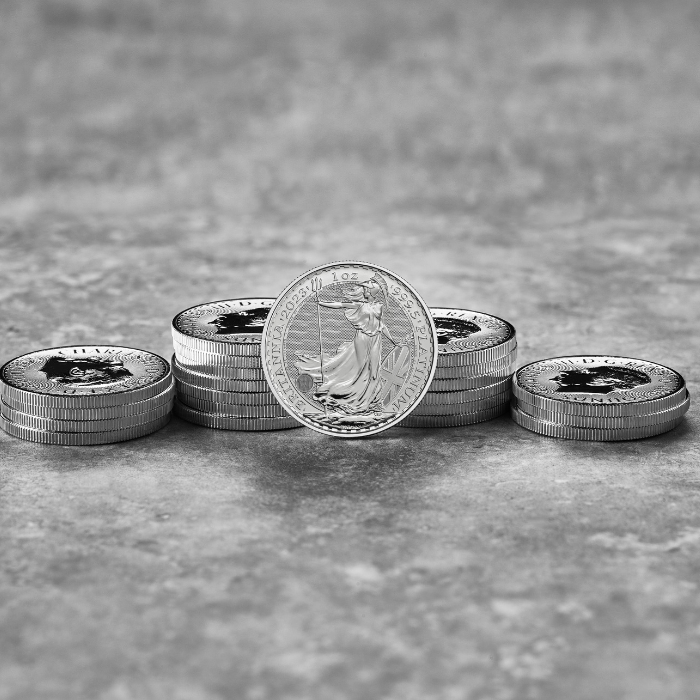Why Investors Are Increasingly Looking to Hold Gold in Their SIPP?
The contents of this article are accurate at the time of publishing, are for general information purposes only, and do not constitute investment, pensions, legal, tax, or any other advice. Before making any investment or financial decision, you may wish to seek advice from your financial, pensions, legal, tax and/or accounting advisers.

The concept of holding gold in Self-Invested Personal Pension (SIPP) account (or SSAS) is an interesting and growing conversation in the world of personal finance and retirement planning. Traditionally, SIPPs (Self Invested Personal Pension) have been used to invest in a range of assets such as stocks, bonds, and funds, but some individuals and financial advisors consider physical gold, traded off exchange, provides greater diversification and mitigation of systemic risks.
Advocates of holding gold in SIPPs often argue that gold can act as a hedge against inflation and economic uncertainty. Gold is often considered a safe-haven asset, meaning that during times of economic turmoil or stock market downturns, it may retain or increase its value. This characteristic can be appealing to some investors looking to protect their retirement savings from market volatility, and the vulnerabilities of the banking sector.
On the other hand, critics of holding gold in SIPPs may argue that gold doesn't generate any income or dividends like traditional investments tend to. It’s true, gold is essentially a non-income bearing asset, and its value primarily relies on supply and demand dynamics. This point, however, should be considered in the context that gold is a highly liquid yet scarce asset, and it is no one’s liability, unlike fiat currency and traded securities. It is bought as a luxury good as much as an investment and, as such, gold can play a fundamental role in a well-diversified portfolio.

According to the Gold Demand Trends report of World Gold Council, 2022 marked the second consecutive year on year increases in Central Bank aggregate gold demand, with net purchases totalling 1,136 tonnes. Last year was not only the thirteenth consecutive year of net purchases, but also the highest level of annual demand on record back to 1950. For those following the big money, this may provide reassurance to the enduring investment case for gold.
Ultimately, the decision to hold gold in a SIPP or any other retirement account is mostly made after careful consideration of an individual's financial goals, risk tolerance, and overall investment strategy. When structuring your family’s finances, it is often suggested to consult a qualified financial advisor who can assess your specific circumstances and provide personalised advice. SIPP and SSAS Pensions can offer greater flexibility and control, but this should always be balanced with well-measured decision making.
Learn more about including Gold in your pension by clicking here.
References:
- Central Banks | Gold Demand Trends Full Year 2022 | World Gold Council (Referenced on 7th August 2023)
- Why Gold Could Play a Role in Your Pension | The Royal Mint
- What is a Gold SIPP | The Royal Mint
This article may include references to third-party sources. We do not endorse or guarantee the accuracy of information from external sources, and readers should verify all information independently and use external sources at their own discretion. We are not responsible for any content or consequences arising from such third-party sources.









